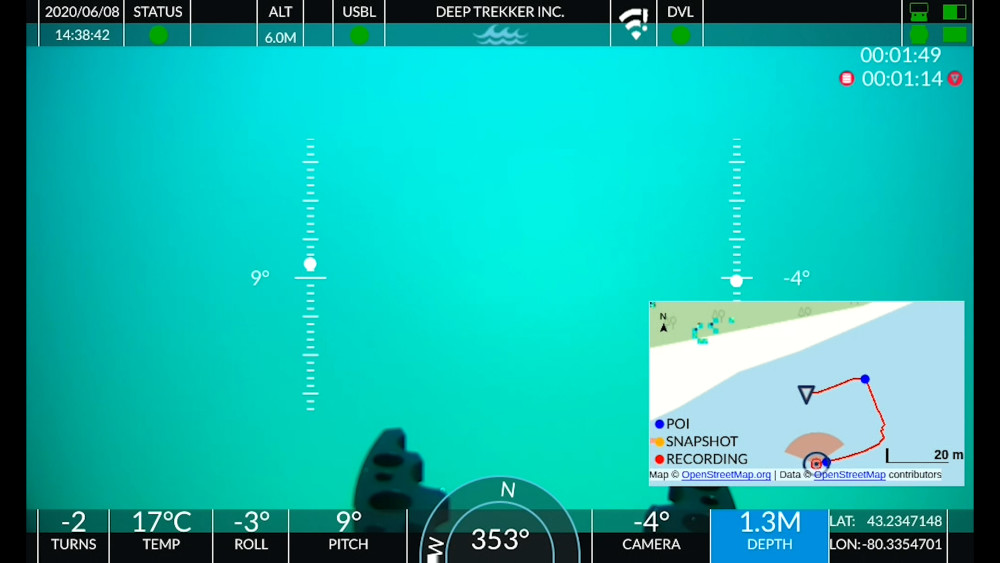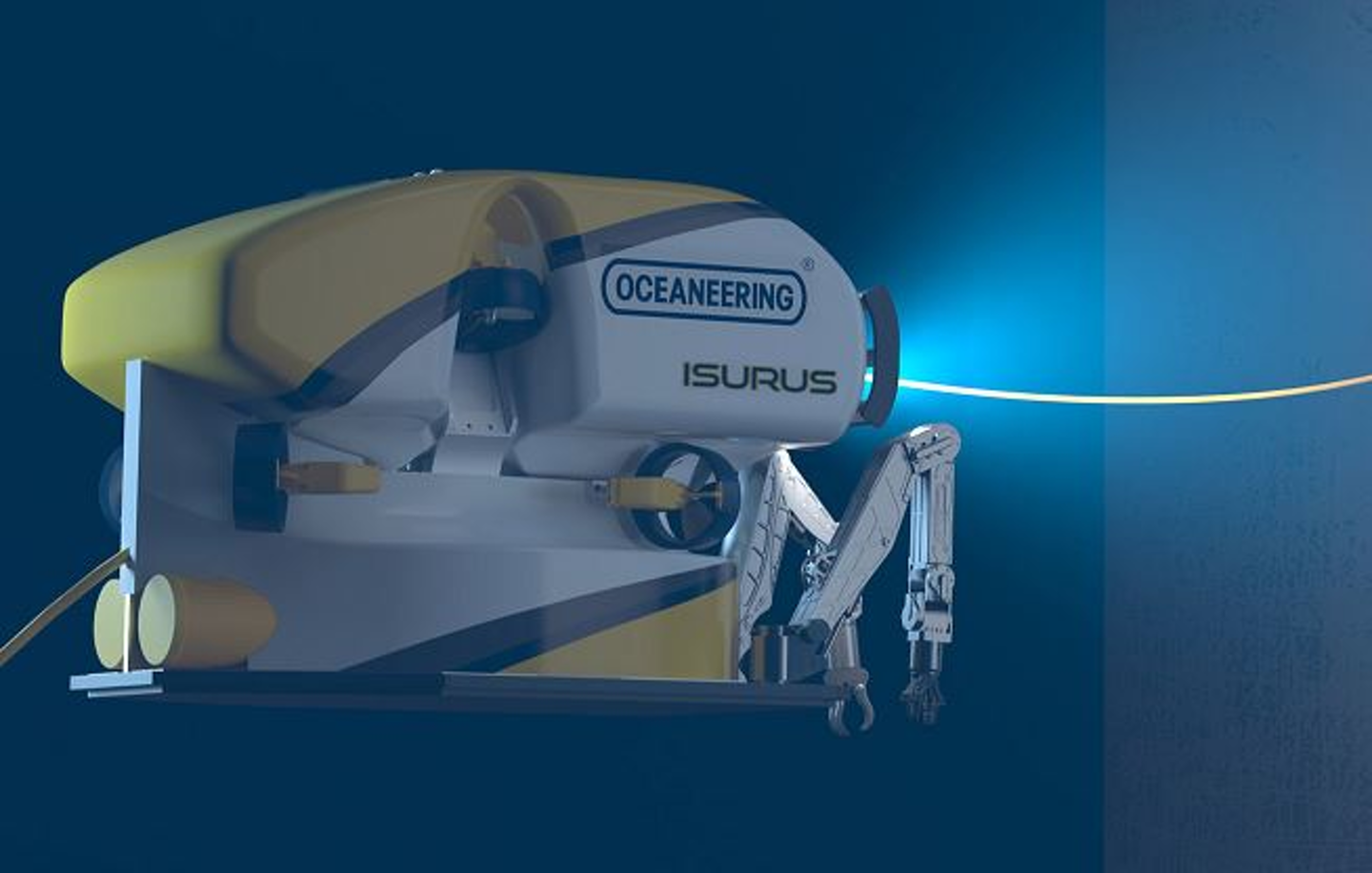Home › Forums › ROV › ROV Rookie Corner › Experience as a trainee
- This topic has 5 replies, 4 voices, and was last updated 16 years, 2 months ago by
Dan Turner.
-
AuthorPosts
-
April 27, 2008 at 1:27 pm #1476
Dan Turner
ParticipantHi all,
I recently started as a trainee, and as there is so much talk on the forums from those of you who want to get a foot in the door I thought I would share my experiences with those of you who are interested.
I started as a trainee with CTC last July. I had already worked for them as ROV Support Engineer for a year before I made the transition to offshore. This wasn’t essential as 4 others started at the same time with no experience of the industry. The prerequisite to gain position as a trainee was to have a technical background, hydraulic/mechanical or electrical. You didn’t have to possess offshore survivals/medicals or have been to Fort Bill or similar (Although these may well have helped). I think a technical background of some description is essential, for those of you who are trying to get in the industry without good luck, but I think you will need it!
During the first few months all trainees were put on the offshore survival course and had their medicals, all paid by the company. We also did the 2 weeks of basic courses with MTCS where we were given our competency schemes. The competency schemes were to be completed over the first year as we worked offshore, and upon completion you are certified as pilot-tech (As per IMCA guidelines).
As CTC is not specifically an ROV company work offshore is varied. We specialise in trenching (Ploughs, tractors and ROV trenchers) so any work class ROV work is in support of this. So if you are only interested in work class ROV’s then it wouldn’t be for you as we are required to work with all the systems. In my view it has been a good place to start. Working with any subsea vehicle will give you a good understanding of the technology involved as many aspects are interchangeable between different classes of vehicle (Survey equipment, control systems etc). And moving between totally different systems can keep the work varied and interesting (Although I have only worked with SMD Quantum up to now). I have no complaints so far.
As for actually working offshore, so far it’s all going well. You get to meet some good characters, and the occasional t****r admittedly! Most people are willing to help you out as long as you’re showing some interest in learning. You might have to hear the odd story (or dozens!) of the ‘good ol’ days at global’ (You know who you are!), which can bore you to tears (or maybe it’s just jealousy on my part??)! And you get to stop in at some good ports where you otherwise might never go in your life. For me the travel, time off (and time away so I’m not always falling out with the missus at home!) and the pay are the best perks, as well as having an interesting job in general. The worst part is that long trips are common, at least 6 weeks usually, although I’m in my tenth week at sea at the minute (Sad I know but I’m doing it for the tax days!!). I’m also away at short notice so it’s quite hard to plan your social life back at home.
All in all I would recommend offshore work, can’t really imagine myself back onshore at the minute.
Oh, and the pay is pretty good, I’m on more as a trainee than I’ve seen anywhere else on the forums, and I think when qualified it’s not bad either. Definitely not the biggest payers but reasonable from what I can gauge.
Hope this has been of interest to someone. If anybody wants to know any more drop me a line.
April 27, 2008 at 2:24 pm #17342Ray Shields
ParticipantThanks for the feedback, we see so many trainees and wannabe trainess come on here but very few post their experiences after they get that elusive first job.
April 27, 2008 at 3:16 pm #17343face21
ParticipantHi all,
I recently started as a trainee, and as there is so much talk on the forums from those of you who want to get a foot in the door I thought I would share my experiences with those of you who are interested.
I started as a trainee with CTC last July. I had already worked for them as ROV Support Engineer for a year before I made the transition to offshore. This wasn’t essential as 4 others started at the same time with no experience of the industry. The prerequisite to gain position as a trainee was to have a technical background, hydraulic/mechanical or electrical. You didn’t have to possess offshore survivals/medicals or have been to Fort Bill or similar (Although these may well have helped). I think a technical background of some description is essential, for those of you who are trying to get in the industry without good luck, but I think you will need it!
During the first few months all trainees were put on the offshore survival course and had their medicals, all paid by the company. We also did the 2 weeks of basic courses with MTCS where we were given our competency schemes. The competency schemes were to be completed over the first year as we worked offshore, and upon completion you are certified as pilot-tech (As per IMCA guidelines).
As CTC is not specifically an ROV company work offshore is varied. We specialise in trenching (Ploughs, tractors and ROV trenchers) so any work class ROV work is in support of this. So if you are only interested in work class ROV’s then it wouldn’t be for you as we are required to work with all the systems. In my view it has been a good place to start. Working with any subsea vehicle will give you a good understanding of the technology involved as many aspects are interchangeable between different classes of vehicle (Survey equipment, control systems etc). And moving between totally different systems can keep the work varied and interesting (Although I have only worked with SMD Quantum up to now). I have no complaints so far.
As for actually working offshore, so far it’s all going well. You get to meet some good characters, and the occasional t****r admittedly! Most people are willing to help you out as long as you’re showing some interest in learning. You might have to hear the odd story (or dozens!) of the ‘good ol’ days at global’ (You know who you are!), which can bore you to tears (or maybe it’s just jealousy on my part??)! And you get to stop in at some good ports where you otherwise might never go in your life. For me the travel, time off (and time away so I’m not always falling out with the missus at home!) and the pay are the best perks, as well as having an interesting job in general. The worst part is that long trips are common, at least 6 weeks usually, although I’m in my tenth week at sea at the minute (Sad I know but I’m doing it for the tax days!!). I’m also away at short notice so it’s quite hard to plan your social life back at home.
All in all I would recommend offshore work, can’t really imagine myself back onshore at the minute.
Oh, and the pay is pretty good, I’m on more as a trainee than I’ve seen anywhere else on the forums, and I think when qualified it’s not bad either. Definitely not the biggest payers but reasonable from what I can gauge.
Hope this has been of interest to someone. If anybody wants to know any more drop me a line.
Good for you….So do you have any advised or how did you manage to get your fist job as a trainee since I’ve been struggling to find one….
thanks..
April 27, 2008 at 3:24 pm #17344K2
Participantrovdanny
Together with Nikeboy’s post you show that it is possible to get into the industry as a trainee. Nice one. I’m sure any aspiring trainees would now like to know:
Did you apply for a specific position, was your application speculative or did you know someone already working for Charlies Travelling Circus that put in a word for you?
What quals and/or experience did you have before application?
Having done the MTSC course did you find this helpful or was it a case of CTC using this as a competency scheme for personnel? Any other comments on this scheme?
What, in your opinion, set you apart from the hundreds of other applicants?
What sort of questions were you asked at the interview?
As for the ‘good ol days’ it’s only a matter of time before you’ll be joining in. You’ll regularly hear about people, companies, jobs, systems and rates it is one way guys gauge the status of the industry.
Now then……….when I was at……… 😆 😆
Stay Safe
😉
April 27, 2008 at 6:18 pm #17345Dan Turner
ParticipantFace21
As I mentioned before I already had an office job with CTC before I moved offshore. I’d not heard of the company until a friend started working for them and told me about the open position in the office. For this reason it’s difficult for me to give you advice on how to get your foot in the door when going straight into offshore ROV. One thing I will mention is that it seems everyone is sending CV’s to the big names, Subsea7, Technip and the likes, but I’ve not heard much mention of the smaller companies such as CTC. I know there are other smaller companies out there which might be worth throwing your CV at, even if they aren’t advertising for trainees. It can’t hurt anyway. The trainee position I took at CTC wasn’t advertised particularly well, and I only knew about it because I was working in the office. The other trainees tell me they saw the positions advertised in the local newspaper. If you are sending a CV make sure you send in a good cover letter which highlights your position and why you are interested in the company. From my experience it’s no good just sending off CV’s on their own. If you have the right technical background/CV and something that will get a prospective employers attention then that’s the main thing. Another thing is some of the other CTC trainees tell me they waited 6 months or so before they got a reply! So if you’ve had no response to your enquirie’s yet I wouldn’t give up hope.
Good luck with the job hunting
😀April 27, 2008 at 6:21 pm #17346Dan Turner
ParticipantK2
As I said to face I already had a job in the office with CTC. As I was looking after ROV’s shore side already this definitely gave me an advantage. When I made CTC aware of my intentions to move offshore they offered me the trainee position without an interview. So I guess I either made a good enough impression in the office to earn the luxury of skipping the interview, or I was so bad that they just wanted me out of there! I’m hoping it was the first.
My background is mechanically biased. Starting with an apprenticeship as a mechanical technician at Corus (Formerly British Steel), in which time I did the usual ONC/HNC’s. I then left there to study a full time degree in Mechanical Engineering with Business. After I completed that I started with CTC which was the first job I applied for as a graduate. One thing I will say about interviews is that it’s all about how you come across to the employer. If you’ve managed to get an interview then they are obviously interested in you from your CV. Then it’s all about your confidence and how you come across to the employer in the interview, and how they see you fitting in the company. Employers will want to know about your relevant work experience and how that will coincide with the position you want with them. Do your research into the company properly and make this apparent to the interviewers. I think it shows a lot about you if you’ve taken the effort to do thorough research. I think the other trainees also took some kind of exam to gauge their knowledge of their trades but I’m not sure exactly what was in it.
As for MTCS, I didn’t really benefit from the initial 2 week course as it was more of an introduction to what you would encounter offshore in the industry. I think the other lads got a bit more out of it than me. As you know already, you won’t start learning anything until you get out there and get your hands dirty. The competency scheme is then down to you to complete. You will not be pushed into completing it but left to your own devices. If you put the effort in and do it properly, and ask people the right questions it will give you a good broad understanding of the basics of the job. I’m sure you’ll know far from everything about ROV’s by the time you finish, but you should have a good understanding of it all. If you can’t be arsed to put the effort in you’ll get nothing back from it at all. There’s no doubt that CTC will use the fact that their employees are trained through a competency scheme in line with IMCA guidelines to their advantage. I’m sure more and more clients will ask to see this sort of proof in the future, so it pays for them to have all the paperwork to back it up. It must be a good thing that there is something in place to show that tech’s are at least following some kind of structured training plan?
As for the ‘good ol’ days’, I don’t mind hearing a good yarn now and again, keep em coming!. In fact I can’t wait to get out to the far east or brazil and get a few of my own to tell! Hopefully with no mention of a dose/scrot rot or getting laid in leprosy colonies by mistake…………………
😀 -
AuthorPosts
- You must be logged in to reply to this topic.



